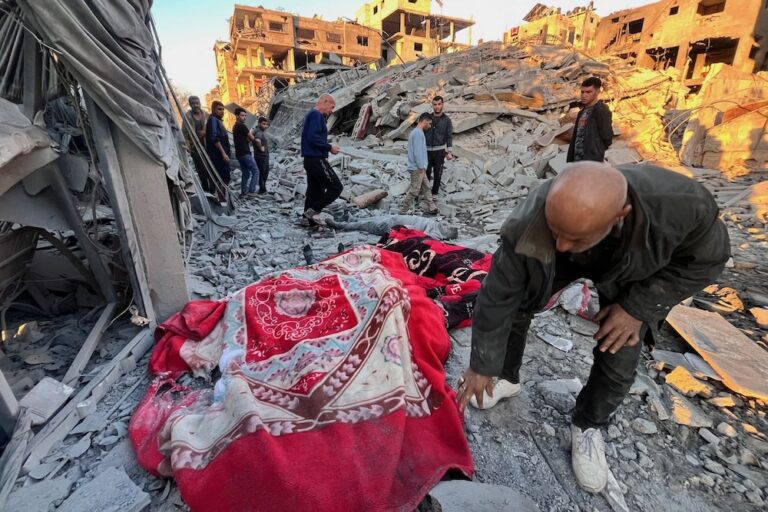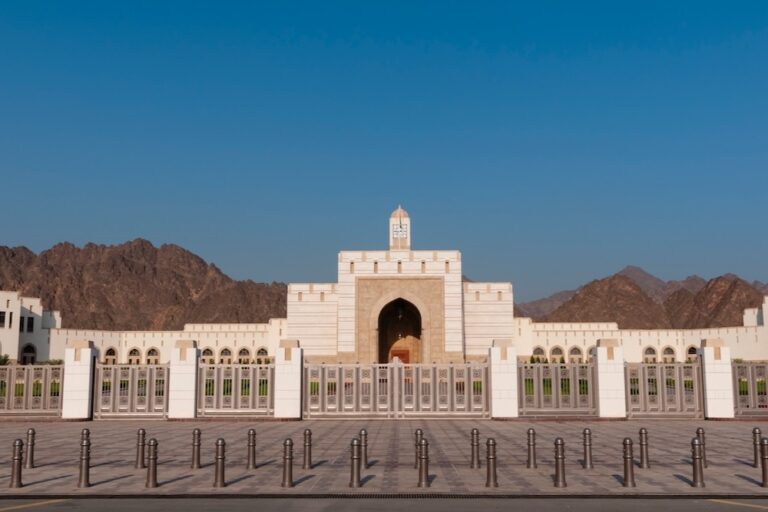IFEX members raise press freedom concerns and call for an investigation into the hacking of Jeff Bezos’s phone by Saudi Crown Prince, Mohammad Bin Salman.
On 22 January, revelations that the phone of Amazon billionaire and Washington Post owner, Jeff Bezos, was deliberately targeted by Saudi Arabia’s Crown Prince, Mohammed Bin Salman (colloquially known as MBS), has spurred calls from rights groups, including IFEX members, for an investigation into the hacking.
The UN Special Rapporteur on summary executions and extrajudicial killings, Agnes Callamard, and UN Special Rapporteur on freedom of expression David Kaye, said in a joint statement:
“The information we have received suggests the possible involvement of the Crown Prince in surveillance of Mr. Bezos, in an effort to influence, if not silence, The Washington Post’s reporting on Saudi Arabia. The allegations reinforce other reporting pointing to a pattern of targeted surveillance of perceived opponents and those of broader strategic importance to the Saudi authorities, including nationals and non-nationals. These allegations are relevant as well to ongoing evaluation of claims about the Crown Prince’s involvement in the 2018 murder of Saudi and Washington Post journalist, Jamal Khashoggi.”
Key findings from a forensic analysis of Bezos’s iPhone concluded with “medium to high confidence” that “Mr. Bezos was subjected to intrusive surveillance via hacking of his phone as a result of actions attributable to the WhatsApp account used by Crown Prince Mohammed bin Salman.”
According to the analysis, Pegasus-3 malware by the Israel-based security firm, NSO Group, was likely installed on Bezos’s phone via a video file sent to him personally by MBS on WhatsApp messenger. In a statement on their website, NSO Group said that it was “shocked and appalled by the story”, and that their technology was “unequivocally… not used in this instance,” and supported calls for a full investigation by concerned bodies.
Pegasus-3 malware has been deployed by Saudi authorities to target dissidents living abroad, including the targeting of London-based satirist Ghanem Almasarir, US-based YouTuber Abdulrahman Almutairi, and Canada-based activist Omar Abdulaziz, who was a close associate of Jamal Khashoggi.
there are obviously still many questions, and that’s why we believe and call for further investigation is necessary, given the nature of the allegations and the threats posed, if true. /end
— David Kaye (@davidakaye) January 22, 2020
IFEX members the Committee to Protect Journalists (CPJ) and the International Press Institute (IPI) have supported calls for further investigation into the allegations, expressing concerns over freedom of expression and the need to hold Saudi authorities accountable.
“We are deeply alarmed by the allegation that the Saudi crown prince used spyware to undermine or suppress The Washington Post,” said Sherif Mansour, CPJ’s Middle East and North Africa Program Coordinator. “An independent investigation is urgently needed into the allegations that Mohammed bin Salman was personally implicated in a hacking attack on Jeff Bezos.”
IPI’s Director of Advocacy, Ravi R. Prasad stated:
“The allegation that Saudi Arabia sought to hack Jeff Bezos’s phone in order to influence The Washington Post’s coverage is deeply disturbing…. we support the call for a prompt and thorough investigation. The international community must prove that it is able and willing to hold Saudi Arabia accountable for the gross rights violations it has thus far managed to conduct with impunity.”
IFEX member ARTICLE 19 also joined calls for an investigation, with Acting Executive Director Quinn McKew emphasizing the role digital surveillance tools have played in monitoring regime critics.
“An immediate independent investigation is needed to determine the truth. This is a particularly egregious example of spyware sold by private companies being used to illegally surveil and intimidate journalists, media owners and human rights defenders.”



